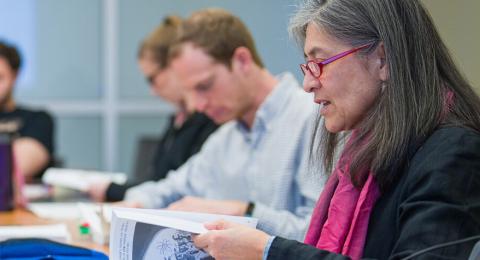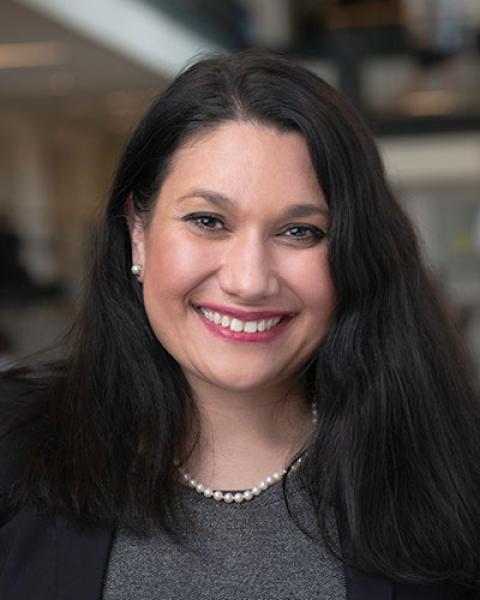Why pursue a Ph.D. in English at UNH?
The English Ph.D. program is designed to prepare you for roles in teaching and scholarship in the fields of literature and language. We offer two concentrations: (1) Literature and (2) Composition, Literacy, and Rhetoric (CLR). In the literature program, you’ll develop your competency in literary study while focusing on a specific area of interest. In the Composition, Literacy, and Rhetoric program, you’ll develop expertise in allied fields and subfields of composition and rhetoric such as (but not limited to): English teaching, writing and literacy pedagogy, linguistics, disability studies, English as a second language, transnational writing rhetoric, multilingual writing, composition research methods, and feminist rhetorics. With small classes and a supportive environment that is keenly focused on excellence across research, teaching, and administration, our graduates experience a remarkable rate of job placement and professional success.
Program Highlights
The Department of English offers a full range of courses and faculty expertise in nearly all fields of literary, language, and creative writing study. Our areas of specialization include Early Modern studies, American studies, ethnic literature, New England studies, gender studies, applied linguistics, Teaching English as a Second Language (TESOL), multilingual writing, transnational and postcolonial studies, medical humanities, rhetoric, and creative writing. In your coursework and studies, you’ll work closely with faculty and fellow graduate students in a supportive community. Under the mentorship of experienced faculty and graduate student instructors, you'll teach your own course sections of writing and literature courses independently instead of serving as an assistant in large lecture classes.
Potential career areas
- Higher Education
- Consultation
- Curriculum development
- Education development
- Writing program administration
Curriculum & Requirements
The English program offers a Ph.D. in English which allows students to specialize in one of two tracks:
Literature
Our graduate program offers you the opportunity to explore the formal, historical, cultural, and theoretical dimensions of diverse forms of the written word. As a student in our program, you will develop a deeper understanding of canonical and innovative approaches to literature in English, including both such nationally-defined traditions as British and American literatures, and traditions organized around other principles, such as Postcolonial or African American literatures. Organized to reflect the changing profession of literary study--its history, its methodologies, and its production of new knowledge--the program includes the study of literature in cultural and historical contexts, the study of representations of identity, comparative approaches to literature, theoretical perspectives, gender studies, and cultural studies. The program offers you both broad-based and specialized courses on a variety of literary topics, and students may supplement their course of literary study with graduate offerings in related subjects and departments, including courses in composition, creative writing, languages and linguistics, history, and sociology, among others.
Rhetoric, Literacy, and Composition Studies
Created in 1985, our program is designed to prepare experts in composition theory, research and pedagogy who can contribute to the evolving knowledge in the field through rigorous research and scholarship. In addition to a specialization in composition studies, students will develop a secondary area of specialization such as applied linguistics, critical theory, English as a second language, English teaching, linguistics or literature.
One of the major strengths of the program is the opportunity to work closely with nationally-known faculty in composition studies in developing research and teaching expertise. We hold high expectations for students but work to create a supportive atmosphere where exams and coursework are matched to individual needs and interests.
Ph.D. students in English normally hold graduate assistantships with the teaching load of one course per semester. Teaching opportunities include First-Year Writing, ESL Composition, Creative Nonfiction, Technical Writing, and Persuasive Writing, as well as Critical Analysis and Literature Courses. Some students also work in Robert J. Connors Writing Center and the Writing Across the Curriculum program.
The Ph.D. program combines the essential guidance and discipline of coursework with the equally essential freedom of independent study and research. Students choose between two areas: literature or rhetoric, literacy, and composition studies.
Ph.D. students normally hold assistantships and teach under supervision; such teaching is considered a vital part of the student's professional training.
Students must demonstrate basic proficiency in two languages or advanced proficiency in one. Basic proficiency may be demonstrated by passing a departmental examination or by receiving a grade of B or better in a fourth-semester college-level language course. Advanced proficiency is demonstrated by passing a rigorous departmental examination.
Literature
The doctoral program in literature is designed to train students to be teachers and scholars. All students must pass a general examination in English and American literature, a more specialized qualifying examination, an oral defense of their dissertation. Students who hold a bachelor's degree, as well as students who hold a master's degree, are welcome to apply to the program.
Students holding only a bachelor's degree at the time of matriculation into the PhD program will be required to take ENGL 925 Graduate Study of Literature in their first semester. At the end of that first semester, their individual level of preparation will be assessed by a committee made up of the instructor of the course, the Graduate Director, and the advisor or other faculty member in the subdiscipline. If a student is considered at that time to require additional preparation to be successful in the program, they will be required to add either two or four courses (at the discretion of the committee) to the traditional total of nine courses before progressing to candidacy. All students, regardless of previous degrees, are required to pass a general exam at the beginning of the second year to ensure an equal level of readiness to progress within the program.
| Code | Title | Credits |
|---|---|---|
| ENGL 925 | Graduate Study of Literature | 4 |
| ENGL 910 | Practicum in Teaching College Composition | 6 |
| ENGL 924 | Professional Preparation | 2 |
| Three 900-level Seminars: 1 | ||
| Select three from the following: | 12 | |
ENGL 938 | Seminar: Studies in 20th Century American Literature | |
ENGL 974 | Seminar: Studies in 20th Century British Literature | |
ENGL 981 | Seminar: Studies in Post-Colonial Literatures in English | |
| Three 800-900 Level Electives 2 | 12 | |
| ENGL 999 | Doctoral Research | 0 |
| Total Credits | 36 | |
- 1
One seminar must satisfy the theory requirement with permission from the instructor and Graduate Director.
- 2
Electives can include any of the 900-level seminars listed above or any 800-900 level course offered by the English Department.
Up to two electives may be taken outside the English Department with the Graduate Director's approval.
RHETORIC, LITERACY, AND COMPOSITION STUDIES
The program in composition studies is designed to train experts who are qualified to teach general courses in literature or linguistics in the teaching of composition. Students in composition studies will complete 10 graduate-level courses of which four must be seminars. The other courses must be at the 800 or 900 levels and include ENGL 910 Practicum in Teaching College Composition and ENGL 918 Research Methods in Composition. Students will take a combined general and qualifying examination that focuses both on the theory of composition and rhetoric, and on a secondary area of specialization. Their dissertation work will be on a topic in composition.
| Code | Title | Credits |
|---|---|---|
| ENGL 910 | Practicum in Teaching College Composition | 6 |
| ENGL 918 | Research Methods in Composition | 4 |
| ENGL 912 | Historical and Theoretical Studies in Rhetoric 1 | 4 |
| ENGL 916 | History of Composition 1 | 4 |
| Composition Electives: | ||
| Select two from the following: | 8 | |
ENGL 829 | Spec Top/Composition Studies | |
ENGL 889 | Special Topics in English Teaching | |
ENGL 892 | Teaching Literature and Literacy: Seminar in English Teaching | |
ENGL 913 | Theory and Practice of Composition | |
ENGL 914 | Special Topics in Composition and Rhetoric | |
| Two Electives in a Related Field 2 | 8 | |
| Two Electives 3 | 8 | |
| ENGL 999 | Doctoral Research | 0 |
| Total Credits | 42 | |
- 1
For these two seminars, other seminars might serve as substitutes, such as ENGL 914 Special Topics in Composition and Rhetoric or ENGL 995 Independent Study if they deal with these subjects.
- 2
Students must take at least two courses in a related or cognate field (such as literature, the essay, linguistics, ESL, or English teaching).
- 3
- Electives can be in Composition, a related field, another subject, or another department with the approval of the adviser.
- No more than two courses may be “slashed” (700/800), unless the related field is linguistics, as linguistics graduate courses are generally slashed; in that case, a third such course may be counted.
- In normal circumstances, no more than two courses may be Independent Studies.
Program Learning Outcomes
- Broad understanding of texts, theoretical paradigms, intellectual traditions, and the methodologies of their field.
- Expertise in critical writing and speaking that adheres to the conventions of the field.
- Expertise in a specific area of literary or composition studies developed through original research and writing the dissertation.
- Pedagogical skills for effective college teaching as both an expert and a generalist.
- Professionalization in the professorate.
Deadlines
Applications must be completed by the following deadlines in order to be reviewed for admission:
- Fall: Jan. 15
- Spring: N/A
- Summer: N/A
- Special: N/A
Application fee: $65
Campus: Durham
New England Regional: ME VT
Accelerated Masters Eligible: No
New Hampshire Residents
Students claiming in-state residency must also submit a Proof of Residence Form. This form is not required to complete your application, but you will need to submit it after you are offered admission, or you will not be able to register for classes.
Transcripts
If you attended UNH or Granite State College (GSC) after September 1, 1991, and have indicated so on your online application, we will retrieve your transcript internally; this includes UNH-Durham, UNH-Manchester, UNH Non-Degree work and GSC.
If you did not attend UNH, or attended prior to September 1, 1991, then you must upload a copy (PDF) of your transcript in the application form. International transcripts must be translated into English.
If admitted, you must then request an official transcript be sent directly to our office from the Registrar's Office of each college/university attended. We accept transcripts both electronically and in hard copy:
- Electronic Transcripts: Please have your institution send the transcript directly to grad.school@unh.edu. Please note that we can only accept copies sent directly from the institution.
- Paper Transcripts: Please send hard copies of transcripts to: UNH Graduate School, Thompson Hall- 105 Main Street, Durham, NH 03824. You may request transcripts be sent to us directly from the institution or you may send them yourself as long as they remain sealed in the original university envelope.
Transcripts from all previous post-secondary institutions must be submitted and applicants must disclose any previous academic or disciplinary sanctions that resulted in their temporary or permanent separation from a previous post-secondary institution. If it is found that previous academic or disciplinary separations were not disclosed, applicants may face denial and admitted students may face dismissal from their academic program.
Letters of recommendation: 3 required
Recommendation letters submitted by relatives or friends, as well as letters older than one year, will not be accepted.
Personal Statement/Essay Questions
Prepare a brief but careful statement regarding:
- Reasons you wish to do graduate work in this field, including your immediate and long-range objectives.
- Your specific research or professional interest and experiences in this field.
Additional Department Requirements
A writing sample is required for this program.
-Literature Applicants are to submit at least one substantial paper which demonstrates their potential to do scholarly work in literature. It should reflect their ability to read literature closely, to place it in a historical or theoretical context, and to use research materials responsibly. Length may vary, but a fifteen to twenty page paper is typical. A paper from an earlier graduate seminar or undergraduate course is acceptable.
-Rhetoric, Literacy, and Composition Studies and Literature Applicants are to submit at least one substantial paper which demonstrates their potential to do scholarly work in rhetoric/literacy/composition. Length may vary, but a fifteen to twenty page paper is typical. A paper from an earlier graduate seminar or undergraduate course is acceptable.
To be admitted to the doctoral program, a student must hold a B.A. or M.A. degree.
Financial Aid requirement: All PH.D applicants are required to submit the Teaching Assistantship Application and the Department Application for Financial Aid, as part of their application, by the application deadline of January 15. See the English program Financial Aid webpage for additional information.
Important Notes
All applicants are encouraged to contact programs directly to discuss program-specific application questions.
International Applicants
Prospective international students are required to submit TOEFL, IELTS, or equivalent examination scores. English Language Exams may be waived if English is your first language. If you wish to request a waiver, then please visit our Test Scores webpage for more information.
Explore Program Details
The Department of English at the University of New Hampshire offers a well-established Ph.D. program in English with a specialization in Composition, Literacy, and Rhetoric.
Created in 1985, our program is designed to prepare experts in composition, rhetoric, literacy and writing studies, and pedagogy who can contribute to the evolving knowledge in these fields through deeply engaged research and scholarship. In addition to a specialization in composition studies, students will design a secondary area of expertise. These secondary areas have, in the past, included English teaching, linguistics, disability studies, English as a second language, writing-across-the-curriculum, and feminist rhetorics.
One of the major strengths of the program is the opportunity to work closely with nationally-recognized faculty in composition, literacy and rhetoric. During coursework, students take four required classes, two composition electives, and two electives in a related field. Faculty and students work to create a supportive atmosphere where exams and coursework are matched to individual needs and interests, while offering a window to a perceptive and insightful understanding of the field.
Ph.D. students in English typically hold graduate teaching assistantships where they teach one course per semester, for five years. Teaching opportunities include First-Year Writing, Creative Nonfiction, Professional and Technical Writing, and Persuasive Writing. In addition to their teaching assistantship, many students also apply to work in the Connors Writing Center. There are also WPA leadership opportunities for advanced graduate students to serve as Assistant Director of the First-Year Writing program as well as the Assistant Director for the Writing Across the Curriculum program. See the page on Financial Aid for more information.
If you would like more information about tuition, fees, housing, and graduate life at UNH, visit the UNH Graduate School.
Faculty
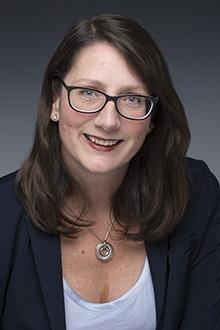
Dr. Cristy Beemer Feminist rhetoric; Rhetorics of Health and Medicine; Composition Theory; Early Modern Rhetoric; |
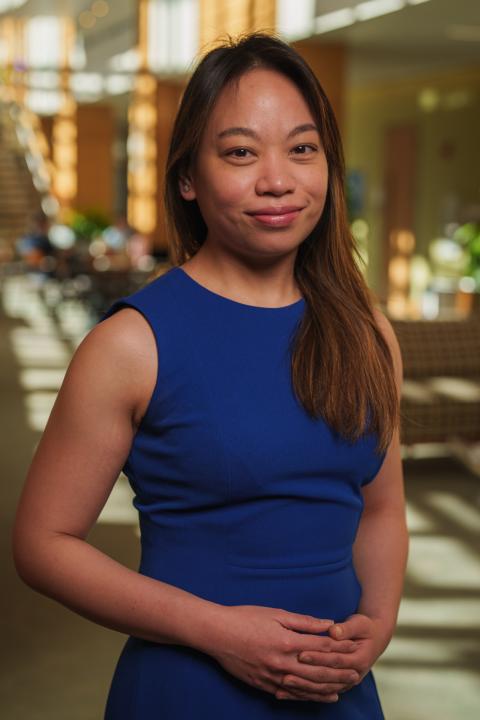
Dr. Florianne "Bo" Jimenez Cultural and comparative rhetoric; Transnational rhetoric and writing; Philippine studies; Global English and language ideology
|
|
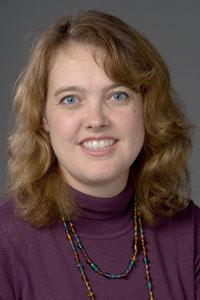
Dr. Christina Ortmeier-Hooper Composition theory and pedagogy; adolescent and immigrant literacy; multilingual writing/literacy; writing teacher education; identity, language, and writing; research methods in composition/literacy. |

Dr. Krista Jackman Composition pedagogy; Composition theory; First-year writing programs; Mixed and multimedia in first-year writing. |
|
|
DR. C.C. Hendricks Feminist rhetorics and historiography; Writing Across the Curriculum;
|
Affiliated Faculty
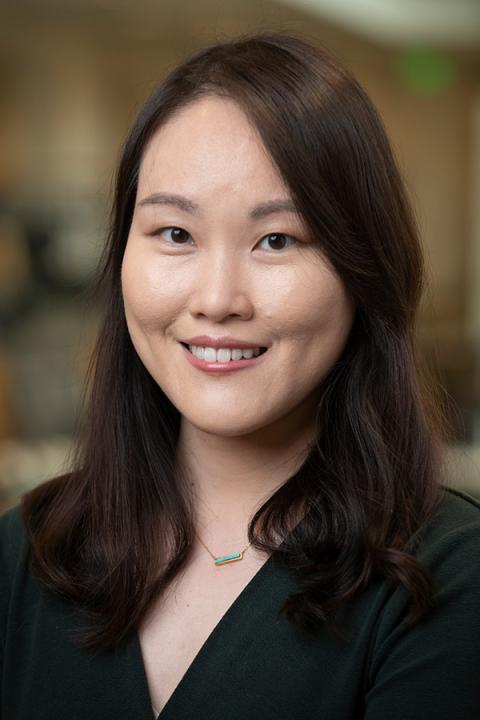
Dr. Soo Hyon Kim Mixed methods research in applied linguistics; Second language writing; Teacher education; TESOL |
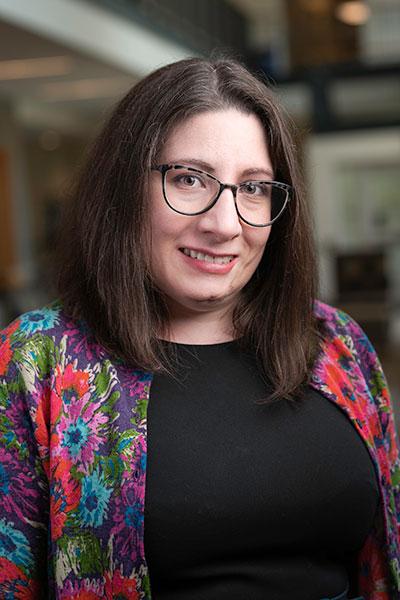
Dr. Alecia Magnifico English education; digital and media literacies; digital learning spaces; fandoms and creative production; social contexts of writing, literacies, and audiences; innovative research methods |
|
|
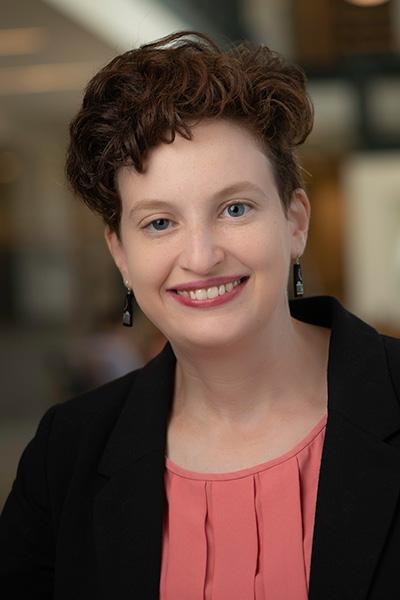
Dr. Rachel Burdin Sociolinguistics; Language and identity; Language contact |
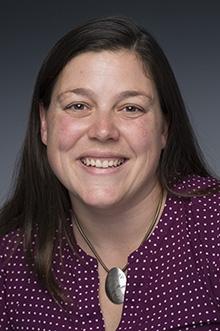
Dr. Bethany Silva Literacy development; Digital literacies; Community literacy projects; Practitioner inquiry; K-6 writing instruction |
|
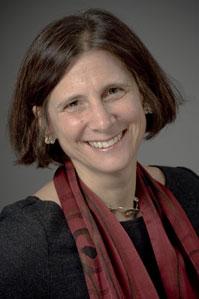
Dr. Lisa MacFarlane American studies; American literature; |
Dr. Meaghan Dittrich Writing Center Studies, Composition Theory; Writing Across the Curriculum (WAC); Feminist Rhetoric; Archival Studies |
Current Students
The General and Qualifying Exams will take place in the student's third year in the doctoral program. It will consist of three parts:
- a 24-hour open-book take-home General Section (which will entail about eight hours of work);
- a 48-hour open-book take-home with one day devoted to each area of specialization (again, each part will entail about eight hours work); and
- a two-hour oral exam to be scheduled not more than one week after the written exams.
The General section and Qualifying sections of the exam must be taken within a single week; the Qualifying Exam must be taken on two consecutive days. One 24 hour period will be devoted to the primary area of concentration (Composition Studies) and the second 24 hour period to the secondary area of specialization.
Students will be awarded a grade of pass, pass with distinction, pass with reservation, or fail. Two failures will constitute grounds for dismissal from the program. Students who have failed the exams on the first try must retake them by the beginning of their fourth year of study.
The General Examination will consist of interpretive responses to passages drawn from significant work in the field of composition studies. In the answers students are expected to show the relationship of each passage to the work of the author and to issues in the field.
In preparing for the Qualifying Exam, the student will choose one secondary field of specialization in addition to the primary area of specialization in Composition Studies. Secondary fields might include a broad area of literary study, an equally broad area of linguistics, or literacy studies. Areas of specialization in literature are broad fields such as a genre, a literary or historical period, a major tradition, or criticism and theory. Areas of specialization in linguistics include theoretical linguistics, sociolinguistics, applied linguistics, and the like.
Exam committees will consist of four faculty members, two in the area of composition and rhetoric, and two in the student's secondary field of specialization. The committee will be selected as follows. The Graduate Director, in consultation with the student, will choose a chair for the committee. The committee chair and the Graduate Director, again in consultation with the student, will choose three additional members in the student's fields of specialization.
Students are encouraged to begin shaping their exam areas during the second year of study. They should begin to consult with the Graduate Director about their committee by the end of the second year. Students will prepare reading lists, which must be placed on file in the Graduate Office by the time of the exam.
What is the purpose of the Ph.D. program in Composition Studies?
Our Ph.D. Program in Composition Studies is designed to prepare experts in composition theory, research and administration. Ph.D.s in Composition Studies usually seek tenure-track positions in higher education, where they will engage in research and scholarship on writing, administer composition programs, prepare composition teachers, and teach composition courses as well as graduate courses in composition history, theory, research and pedagogy.
Does UNH also offer an M.A. program in Composition Studies?
No, UNH offers Composition Studies at the Ph.D. level only. UNH does offer an MFA program in Creative Writing for those who want to become writers of fiction, nonfiction and poetry. Ph.D. in Composition Studies is for those who want to develop expertise in writing theory, research and administration.
Do I need a master's degree in Composition Studies to apply to the Ph.D. program in Composition Studies?
A master's degree in a related academic field is required. Although an applicant does not have to have an MA in Composition Studies, some graduate-level coursework in composition theory or research will be advantageous in gaining admission. If you have little or no background in Composition Studies, you will be expected to "catch up" during the first two years while completing your coursework. We expect all incoming Ph.D. students to be familiar with articles included in Cross-Talk in Comp Theory 2nd ed., edited by Victor Villanueva.
Will the Ph.D. program in Composition Studies help me develop my own ability to write literary genres such as poetry, fiction, and literary nonfiction?
Ph.D. program in Composition Studies is designed to provide a professional preparation for scholar-teachers who will engage in rigorous research and scholarship in Composition Studies. Although the intense writing experience in graduate school may enhance your ability to write in various academic genres, the Ph.D. Program is not intended as a preparation for future writers of literary genres. If you are interested in developing your ability to write in literary genres, UNH offers an excellent MFA program in Creative Writing.
Can I pursue my Ph.D. degree in Composition Studies in absentia--i.e., without living in Durham or surrounding area?
The answer is a definite no. As a matter of policy, UNH's doctoral program does not normally admit Ph.D. students without teaching assistantship because teaching preparation is one of the important aspects of professional preparation for doctoral students who will go on to teach at other institutions of higher education. Doctoral students who try to pursue their studies in absentia will also be deprived of the necessary support from the faculty and the graduate student community.
How much work will it take to pursue a Ph.D. in Composition Studies?
Being a Ph.D. student is like having a full-time job – sometimes it may feel like a job and a half.
During the first two years, Ph.D. students are expected to enroll in two graduate (800- or 900-level) courses per semester while teaching one writing course. After the coursework is completed, students will prepare for the qualifying exam by developing a reading list that represents both the breadth and depth of their knowledge of theory and research in Composition Studies. During the final stage of the program, students will engage in dissertation research, which constitutes an original contribution to Composition Studies.
In addition, Ph.D. students will be expected to develop their own research expertise within composition studies, to present their research at conferences, and to prepare manuscripts for publication. Students will also gain experience in administration by serving as assistant directors of various programs and by participating in departmental committees. Some students also work closely with faculty members as research or editorial assistants.
Graduate students in our program develop a strong record of research and publication. Many of them have published journal articles and book chapters. They are also actively involved in local, regional and national professional organizations, presenting papers and workshops at such conferences as the Conference on College Composition and Communication (CCCC), National Council of Teachers of English (NCTE), American Association for Applied Linguistics (AAAL), Association Internationale de Linguistique Appliqee (AILA), Teachers of English to Speakers of Other Languages (TESOL), the North East Writing Center Association Conference (NEWCA), Northern New England TESOL (NNETESOL), Thomas Watson Conference, and the Symposium on Second Language Writing.
Graduate students can find research opportunities in programs such as the First-Year Composition, Writing Across the Curriculum, and Robert J. Connors Writing Center. Opportunities for archival research is also available; UNH Library maintains the library of Richard S. Beal, which forms the core of the National Archives of Composition and Rhetoric.
Professional Opportunities
Our doctoral program provides multiple and ongoing opportunities for involvement in professional activities. UNH is the home of a well-established biennial conference on composition studies.
In addition, the New Hampshire Literacy Institutes provides opportunities not only to take various courses during the summer but also to interact with faculty from other programs, departments, and institutions.
UNH is also the home of the Richard Beal Collection, which forms the core of the National Archives of Composition and Rhetoric.
Support for Professional Conferences
The English Department offers some modest support for graduate students who are giving a paper or chairing a session at a professional conference in their field. Because these awards are made on a first-come, first-serve basis, you should make application as soon as you can in the academic year. To apply, email the Graduate Director requesting support; include the title of your paper (or session, if you are chairing a session), the conference and location at which it will be given, the dates of the conference, and an estimate of your anticipated expenses. The Graduate Coordinator will notify you in writing about the availability of support.
The Graduate School also offers modest support for graduate students who are giving a paper or chairing a session at a professional conference. These awards can be combined with support from the English Department. Last year, awards were $200 per conference and were awarded on a first-come, first-serve basis. Fill out the form at https://gradschool.unh.edu/admissions/financial/travel-grant-request-form to apply
At present, the English Department and Graduate School do not offer financial support for attending professional conferences without giving a paper.
Administrative Experience
Composition specialists are often asked by their departments to administer various writing programs -- such as first-year composition, basic writing, ESL writing, advanced writing, professional writing, writing across the curriculum and writing centers. For this reason, it is important for Ph.D.'s in composition studies to develop expertise in program administration.
At UNH, some advanced doctoral students gain administrative experience by working for the Composition Program or by participating in departmental committees such as Composition Studies Committee. Others gain experience in organizing professional conferences such as the biennial UNH conference on composition studies and the Symposium on Second Language Writing.
Our graduate program offers you the opportunity to explore the formal, historical, cultural, and theoretical dimensions of diverse forms of the written word. As a student in our program, you will develop a deeper understanding of canonical and innovative approaches to literature in English, including both such nationally-defined traditions as British and American literatures, and traditions organized around other principles, such as Postcolonial or African American literatures. Organized to reflect the changing profession of literary study--its history, its methodologies, and its production of new knowledge--the program includes the study of literature in cultural and historical contexts, the study of representations of identity, comparative approaches to literature, theoretical perspectives, gender studies, and cultural studies. The program offers you both broad-based and specialized courses on a variety of literary topics, and students may supplement their course of literary study with graduate offerings in related subjects and departments, including courses in composition, creative writing, languages and linguistics, history, and sociology, among others.
Graduate students who come to study in our Department will find that we “cover” a great range of subjects in British and American literature, film, theory, linguistics, and composition and rhetoric. We don’t do everything, and we are stronger in some areas than in others, but we offer enough variety in our courses, and we are flexible and adventurous enough in accommodating thesis and dissertation topics, that our students almost always find the guidance they need in pursuing their intellectual interests.
To help students see the shape of our Department, we have grouped professors below by their primary and some of their secondary fields. All of them are versatile to one degree or another, and many of them are affiliated with interdisciplinary programs.
British Literature by Period
Early Modern or Renaissance
Cristy Beemer, Douglas Lanier, Rachel Trubowitz
Shakespeare
Cristy Beemer, Douglas Lanier, Rachel Trubowitz
Milton
Rachel Trubowitz
Nineteenth Century
James Krasner, Sandhya Shetty
Twentieth and Twenty-First Centuries
Robin Hackett, Martin McKinsey
American Literature by Period
Nineteenth Century
Brigitte Bailey
Twentieth and Twenty-First Centuries
Delia Konzett, Lisa MacFarlane, Petar Ramadanovic
American Studies
All the Americanist professors take part in the American Studies undergraduate minor and reflect their interdisiplinary interests in their graduate courses.
Other Literary Fields
Irish Literature
Martin McKinsey
Post-Colonial Literature
Martin McKinsey, Sandhya Shetty
Asian-American Literature
Delia Konzett
Atlantic Studies
Brigitte Bailey
Classics and World Literature
Martin McKinsey
Women’s and Gender Studies
Cristy Beemer, Robin Hackett
Queer Literature (Gay and Lesbian Literature)
Robin Hackett
Poetry
Martin McKinsey
Fiction and Narrative
Robin Hackett, James Krasner, Sandhya Shetty
Drama and Performance Studies
Douglas Lanier
Literary and Cultural Theory
Petar Ramadanovic
Note: Professor Ramadanovic is our specialist in theory, but many of the other professors have a strong interest in theory, or in certain theories, and regularly assign theoretical readings in their graduate courses. Among the schools of theory actively explored by our professors are feminism of various kinds, New Historicism, post-colonial theory, ecocriticism, Marxism, queer theory, and cultural studies.
Fields of Literary Interest
Graduate students in literature are encouraged to consider these areas for their “elective” courses.
Film
Delia Konzett, Douglas Lanier
Visual Culture
Brigitte Bailey, Douglas Lanier
Language and Linguistics
Rachel Burdin, Soo Hyon Kim
Training in Teaching
Most Ph.D. candidates hold Teaching Assistantships throughout their programs, and the practical experience of teaching Freshman Composition is part of the candidate's preparation for a career in teaching. The course on teaching of composition (English 910) and the regular English 401 staff meetings supplement this experience, giving the teaching itself some theoretical underpinning and encouraging mutual reflection on teaching methods and problems. For those who want even stronger credentials in the teaching of composition, the seminar on teaching composition (English 917) allows students to do first-hand research.
During the third and fourth years of the program, the candidate will typically do one or more apprenticeships in the teaching of literature. Instead of teaching English 401, the student will be assigned to teach one or two of the 500-level (sophomore level) literature courses and work with a faculty member in the department on developing all aspects of the course--planning the syllabus, leading discussions, lecturing, grading, etc.
Support for Professional Conferences
The English Department offers some modest support for graduate students who are giving a paper or chairing a session at a professional conference in their field. Because these awards are made on a first-come, first-serve basis, you should apply as soon as you can in the academic year. To apply, write the Graduate Coordinator a letter requesting support; include the title of your paper (or session, if you are chairing a session), the conference and location at which it will be given, the dates of the conference, and an estimate of your anticipated expenses. The Graduate Coordinator will notify you in writing about the availability of support.
The Graduate School also offers modest support for graduate students who are giving a paper or chairing a session at a professional conference. These awards can be combined with support from the English Department.
Fill out an application form here. Please include an acknowledgment that you have received support from the English Department (if you have). The Graduate School will notify you in writing about the availability of support. It is a courtesy to the Graduate School to thank them after the conference for supporting your work.
At present, the English Department and Graduate School do not offer financial support for attending professional conferences without giving a paper or chairing a panel.
Although the major work on the dissertation is concentrated in the last year or year and a half of the program, a good dissertation develops and gets refined over a longer period of time. The candidate should have a subject in mind as he or she selects fields for the Qualifying Examination. Then the fields can be chosen appropriately and the subject can grow as the student prepares for that exam.
Once the student has passed the Qualifying Examination, a doctoral committee is appointed by the Dean of the Graduate School after nomination by the Department. This committee is normally composed of three professors from the English Department and two more from related departments. The student then prepares a written proposal outlining the dissertation topic, a minimum of ten pages long, the materials to be used, and pertinent scholarship related to the topic. The student has six months from the date of passing the Qualifying Examination to present this proposal.
After submitting copies of this proposal to the doctoral committee, the student meets with its members to defend the proposal and to demonstrate his or her preparation to work on the project. The meeting should last one and one-half hours. The committee may opt to 1) approve the proposal, 2) require that the proposal be revised, 3) require that the student undertake further preparation before proceeding (the conditions are set by the committee and monitored by its chair). If the proposal needs to be re-presented, the student may take no more than an additional six months to do so.
Doctoral candidates registering for English 999 are normally expected to attend a noncredit non-graded dissertation workshop directed by a member of the English Department's graduate faculty. This workshop will meet approximately once a month. (If travel presents a hardship, this requirement may be waived through a petition to the Graduate Director).
In preparing the dissertation, the candidate should refer to the Graduate Catalogue for technical requirements. For dissertation format, the student must consult the graduate school pamphlet, Manual for the Preparation of Theses. After the dissertation is completed, the candidate will defend it orally at a formal examination with the doctoral committee.
See a list of UNH Literature Ph.D. recipients with their dissertation topics and current employment.
